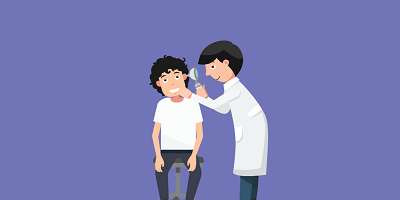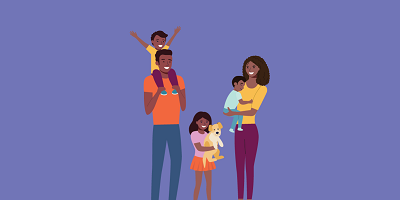Hear Us Out: Breaking Down Common Hearing Loss Misconceptions

Although most people will be affected by hearing loss at some point in their life, many questions and misconceptions surround the topic. These misconceptions spread a vast misunderstanding of hearing damage and push false information. Hearing is an essential component of our health, and our Audiologists want patients to have the proper knowledge and understanding of the topic to take care of their hearing.
Misconception: Hearing loss only happens to older people.
Although this is a common misconception, 40% of people who have hearing loss are under 60 years of age. Also, there is an increase in noise-induced hearing loss (NHIL) in pre-teens, teens, and young adults. With NHIL, most people can hear voices well, but they often struggle to decipher what people are trying to say. This type of hearing loss is one of the most common and is increasing due to the rise of earbuds in children and teens. Using earbuds to listen to music often, even on a medium volume, for a prolonged period causes hearing loss. Instead of using earbuds, switching to over-the-ear headphones can help prevent further damage. Hearing impairment in the younger generation is more prevalent than people realize, with 1 in 5 teens suffering from some sort of hearing loss. “Although hearing loss is associated with old age, it can occur at any age from many different causes,” says Dr. Bayle Anderson, an Audiologist at Harbin Clinic Calhoun, Cartersville, and Rome. “Old age can be a cause of hearing loss, but so can numerous other factors, such as exposure to loud noises, ear infections, hereditary factors, and even certain medications.”
Misconception: Only long-term exposure to loud noises can give you hearing loss.
People often think that hearing loss is caused by prolonged exposure to loud noises, but even being exposed to a loud noise once can cause extensive damage. Fireworks, concerts, and gunshots are all examples of short noise exposures that can damage your hearing. It can improve over time, but it’s still important to protect yourself from factors that can cause hearing loss or impairment. Avoid loud noises if possible, and use hearing protection such as noise-canceling headphones if it’s not possible to avoid the situation. Even if the noise exposure is for a short duration of time, such as one gunshot or a few fireworks, ear protection is still essential. It’s easier to protect your hearing than to fix your hearing once you have damaged it.
Misconception: Hearing aids and hearing amplifiers are the same things.
When it comes to treating hearing, some people assume that hearing aids and hearing amplifiers are the same. While they both improve your ability to hear sound, they work very differently. Amplification devices can be bought over the counter and are not customized to a person’s hearing patterns or needs. They can help in mild cases of hearing loss, but it’s complicated to figure out if you’re using the amplifier correctly and not too loudly, which could further damage your hearing. They can be challenging to utilize correctly and to adjust to your specific needs. Hearing aids are medical devices that are available through healthcare professionals. While amplifiers amplify all sounds, hearing aids only amplify the frequencies you have trouble hearing. Since hearing loss is different for everyone, the ‘one-size-fits-all’ amplifiers tend to not work as well as hearing aids. Hearing aids are calibrated specifically for a patient to provide them with optimal hearing. Hearing loss is unique no matter how severe or minor. During a hearing test, a patient’s specific hearing is mapped out and used for hearing aids, making them perfectly matched to the individual’s needs. While hearing aids can be more expensive than the alternative, the cost of hearing is priceless.
Misconception: Hearing loss doesn’t affect my health.
Hearing loss can affect other aspects of your health, such as your balance and your mental and neurological health. Your balance and hearing go hand in hand, with hearing loss causing vertigo and a loss of balance. Hearing loss can also affect you neurologically, increasing your risk of developing dementia and cognitive decline. This can also lead to patients becoming frustrated, withdrawn, and possibly depressed. “Since hearing loss causes communication difficulties, it can cause patients to feel isolated,” says Dr. Anderson. “The inability to engage in conversations with loved ones can be extremely hard on a patient and can often lead to depression.”
Hearing is a significant component of our health, and it could lead to other health problems if we neglect to take care of it. Doing small things such as turning down the music, wearing ear protection at loud events, and trading your earbuds in for over-the-ear headphones can all help reduce your chances of impairing your hearing. Your hearing affects your day-to-day life, overall health and relationships, which is why it’s vital to take the necessary steps to take care of your hearing the best you can. To get your hearing checked and schedule an appointment with one of our audiologists, visit Harbin Clinic Audiology.


